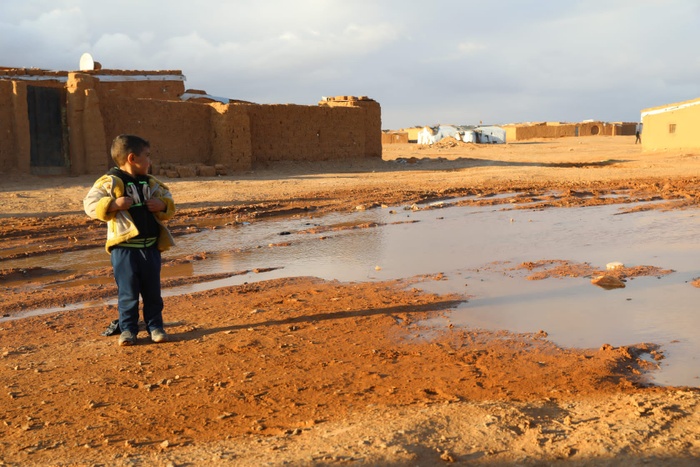Nonsense. There are several things that the U.S. government could and should do that could prevent the catastrophe in Syria from getting even worse. This week, in fact, dozens of former U.S. officials, experts and leaders of Syrian organizations sent President Biden and Secretary of State Antony Blinken a long list of things the administration ought to be doing right now. The letter’s signatories also explain why it matters.
“None of the issues that caused the Syria conflict have been resolved, most notably Assad regime atrocities and inability, or refusal to reform,” the letter states. “Many of the conflict’s symptoms are worsening, from human suffering, industrial-scale drug trafficking, refugee flows, terrorism, geopolitical conflict and ethnic and sectarian hostilities.”
In other words, Washington is sorely mistaken if it thinks that allowing regional players to reestablish diplomatic and economic ties with Bashar al-Assad will lead to greater stability. As the authors write: “Syria’s crisis is complex, but unconditional regime normalization is not inevitable.”
The administration claims that its policy of opposing Assad’s normalization “remains unchanged.” But Syrians are not buying it. They say that recent statements by Biden officials amount to tacit approval to supposed U.S. partners who are warming to the Syrian dictator. For example, the State Department’s top Middle East official, Barbara Leaf, said on March 9, “Our basic message has been [that] if you’re going to engage with the regime, get something for that.”
On March 19, United Arab Emirates ruler Mohamed bin Zayed al-Nahyan greeted Assad in Abu Dhabi with a 21-gun salute, particularly disturbing symbolism on the 12th anniversary of the Syrian uprising. There was no indication the UAE won any benefits for the Syrian people in return for the visit. The State Department declined to criticize the move.
“The Biden administration is failing the Syrian people,” said Mouaz Moustafa, executive director of the Syrian Emergency Task Force, a pro-opposition Syrian American aid group. “The danger of the Biden administration’s complacency and latent support for normalization with Assad is that it will invite other dictators to pursue the same policies.”
The State Department has largely ignored its most potent available tool for isolating Assad — namely, the Caesar Act, which authorized sanctions on anyone who aids the Syrian government. Their first and only use of these sanctions was this week, against drug traffickers. That’s a broken promise from Blinken, who said during the 2020 campaign that the Biden administration would fully implement the law. The leaders of both the Senate Foreign Relations and House Foreign Affairs Committees wrote to Blinken last week to lament the “disappointingly slow pace of sanctions” under the Caesar Act.
Sen. Robert Menendez (D-N.J.), chairman of the Foreign Relations Committee, lamented the Biden administration’s lack of a comprehensive strategy for Syria and urged Biden and Blinken to take the experts’ list of recommendations seriously. They recommend increasing aid volume and access to liberated areas, intensifying diplomacy, resetting relations with Turkey, addressing the ISIS detainee crisis, and maintaining pressure on Assad to stop the ongoing atrocities while pursuing accountability.
Middle East Institute Senior Fellow Charles Lister, who helped organize the list sent to Biden and Blinken, told me that the signatories don’t expect the administration to suddenly decide to ramp up its Syria engagement. But it is wrong to say that there are no good options.
“It did not need to be this way,” Lister said. “Yes, the days of forcing the Assad regime out are long gone, but there are many other things we could still be doing to have a useful and productive effect for the United States and the Syrian people.”
It’s tempting for any U.S. administration to throw up its hands when it comes to Syria. But the current strategy of passive neglect is neither stable nor sustainable. If current trends continue, the Islamic State will revive, and tensions between Turkish-backed and Kurdish-backed forces in Northern Syria will spill over into more bloodshed. Iran and Russia will expand their influence. Millions of internally displaced Syrians will suffer, and millions of refugees will never return home. Gulf partners will continue to cozy up to China. Assad will continue to slaughter. And future mass murderers will learn that there is no accountability in store for them.
It is hard to imagine that Syria could get worse — but it can and it will if U.S. interest and involvement continue to wane. The Biden administration’s lack of strategy does not absolve it of responsibility for the coming consequences of its inaction.
Source: The Washington Post









